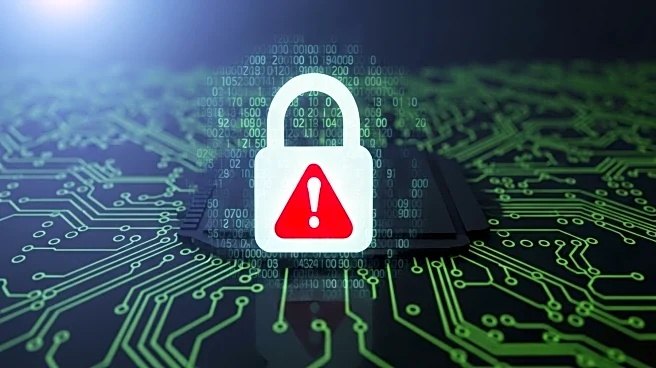What is the story about?
What's Happening?
The European Union's cybersecurity agency, ENISA, has released its 2025 Threat Landscape report, highlighting a significant number of cyberattacks targeting operational technology (OT) systems within the EU. The report, which analyzed nearly 4,900 cybersecurity incidents from July 2024 to June 2025, found that 18.2% of threats were aimed at OT systems. These attacks are often conducted by state-sponsored hacktivists, such as the pro-Russian group NoName057(16), known for its DDoS attacks. The report also mentions the Z-Pentest Alliance, a coalition of hacker groups targeting industrial control systems (ICS) in Western countries, and the Infrastructure Destruction Squad (IDS), which has developed ICS-specific malware.
Why It's Important?
The targeting of OT systems poses a significant threat to industrial and critical infrastructure, which are increasingly connected and vulnerable to cyberattacks. These systems are crucial for the functioning of essential services, and disruptions can have severe economic and societal impacts. The involvement of state-sponsored groups suggests geopolitical motivations, potentially aiming to weaken Western countries' technological capabilities. The report underscores the need for enhanced cybersecurity measures and international cooperation to protect critical infrastructure from such threats.
What's Next?
ENISA's findings may prompt EU member states to strengthen their cybersecurity defenses, particularly for OT systems. There could be increased collaboration between governments and private sectors to develop more robust security protocols. Additionally, the report may lead to heightened awareness and preparedness against state-sponsored cyber threats, potentially influencing policy decisions and international cybersecurity strategies.
Beyond the Headlines
The report highlights the ethical and legal challenges of attributing cyberattacks to state-sponsored groups, which can complicate diplomatic relations and international law enforcement efforts. The increasing sophistication of malware like VoltRuptor raises concerns about the future of cybersecurity and the need for continuous innovation in defense mechanisms.

















